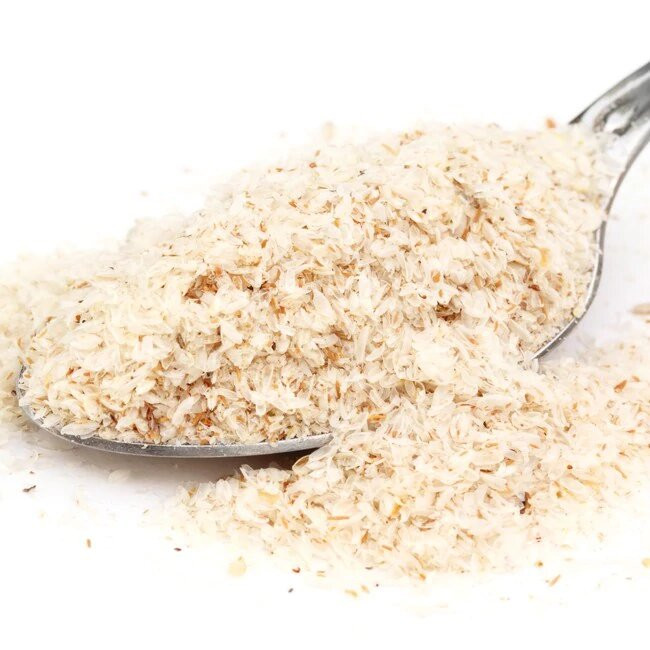
Psyllium: Debunking the Myths
Let’s face it, there’s A LOT of stigma, hype and superstitions surrounding the ingredient psyllium use in horses. Traditionally, it’s been used for sand clearance in seven-day purges but, do you know why you feed it that way? Do you know about the other benefits that psyllium incorporation offers for your horse’s diet? Does it actually pick up sand? Is there any difference between brands and types? Building on last week’s post discussing the amazing benefits of psyllium, this week we will address some of the common myths associated with psyllium use in horses.
Why is our team at Arenus Animal Health discussing psyllium? There are a few reasons. First and foremost, psyllium is one of the ingredients we use in our Assure products. The Assure line is composed of digestive supplements for horses that can help with issues like colic, loose stool, and other common digestive health issues. We've put years of hard work and research into all of our products at Arenus Animal Health. That means, if we've chosen to include psyllium in one of our digestive supplements for horses, it was very intentional and well researched.
Question: Is it true that horses can build up a resistance to psyllium if used daily?
Answer: No. This is a long-standing myth within the veterinary community that has translated to horse owners and the rest of the equine community. Long ago, Dr. Joe Bertone posed a theory when investigating psyllium use in horses, but it was simply speculation. Because of this, the traditional method of feeding psyllium for one week out of each month was born. There has yet to be a research study confirming or denying the development of psyllium resistance in horses who are supplemented daily. In fact, to date, there are more studies supporting its daily use in horses than discouraging it.
Question: Does psyllium work by actually “picking up” sand and carrying it out of the digestive tract?
Answer: No. Essentially, psyllium is a mild laxative that supports optimal motility throughout the digestive tract — particularly within the hindgut. It works by promoting your horse’s gut to work as efficiently as possible so it can expel any excess debris on its own.
Question: Are all equine psyllium supplements created equal?
Answer: No. Think about this in terms of Metamucil; if you’ve ever used this product, you know it comes in a flake form that is dissolved in water. Psyllium, in its most basic form, is a flake, but getting your horse to eat a flake (and eat it in enough quantity to do any good) is next to impossible! It’s a little like trying to feed dry beet pulp or bran flakes.
Thus, the majority of equine psyllium horse supplements are highly processed into a granular form or pellets to make them more palatable and economical. The problem with this is that, during the processing, the original psyllium flake loses much of its water-binding capacity and, therefore, is unable to function as efficiently as it normally would once in the digestive tract. Essentially, these products form a “hockey puck” within your horse’s gut!
Sure, they’ll have some beneficial effects, but you won’t truly appreciate the full benefits of supplementing your horse with psyllium. Arenus Animal Health uses a patented pelleting process that utilizes only pressure. This means that the flakes are simply pressed together to make the pellets used in Assure Plus and Assure Guard Gold, thereby retaining the complete benefits of the original psyllium flake and placing them in a neat, palatable package!
Question: Isn’t psyllium just for sand removal?
Answer: No. Psyllium is quickly becoming the equine superfood. Historically, because of its laxative effects, psyllium was prescribed for incidences of sand colic or accumulation, and the majority of the equine world still views it as such. However, there have been a number of advancements and published research demonstrating the many health benefits to horses supplemented with a quality psyllium daily.
Psyllium has the power to prevent and limit the severity of hindgut ulcers [1] by forming a protective barrier to the mucosa. It’s proven beneficial in repairing the mucosal tissues in horses with a history of colitis [2] along with controlling instances of chronic diarrhea and colic [3]. It’s even been proven to control blood glucose and insulin levels in horses [4] and can be extremely beneficial to those with metabolic diseases like Equine Metabolic Syndrome, Insulin Resistance and Cushings!
Ready to see the powerful benefits of psyllium for your horse? Shop Assure, Assure Guard, Assure Guard Gold, and Assure Plus today! Only, at Arenus Animal Health.
References:
[1] Sahagun AM, Vaquera J, Garcia JJ, Calle AP, Diez M, Fernandez N, Loro JF, Portilla HO, Sierra M. Study of the protective effect on intestinal mucosa of the hydrosoluble fiber Plantago ovata husk. BMC Complement Altern Med. 2015; 15: 298.
[2] Reuss SM. Updates in the Medical Management of Colic: Moving Beyond Mineral Oil. AAEP Proceedings 2014; 60: 213-218.
[3] Brendemuehl JP, Altman J, Kopp K, Blikslager A. A multi-center clinical trial utilizing a combined probiotic, prebiotic and psyllium product for the management of chronic gastrointestinal disorders (diarrhea and colic) in clinically affected horses. 2010; Novus Nutritional Brands, LLC.
[4] Moreaux S, Nichols J, Bowman J, Hatfield P. Psyllium Lowers Blood Glucose and Insulin Concentrations in Horses. J Eq Vet Sci 2011; 31, 4: 160-165.


